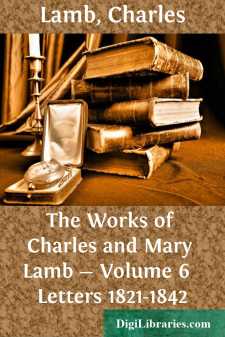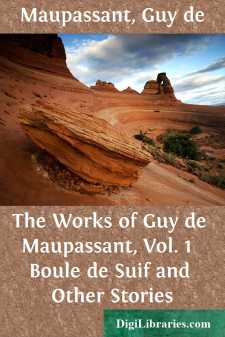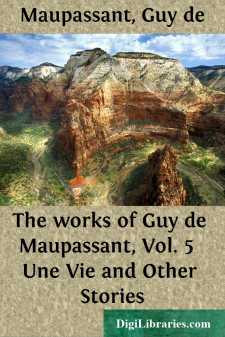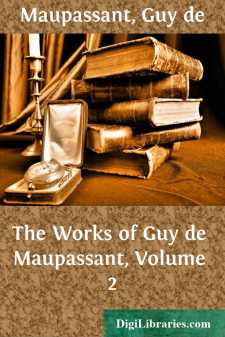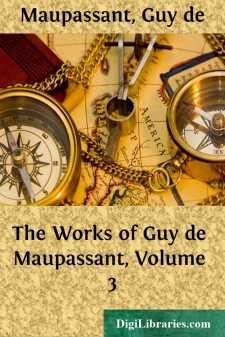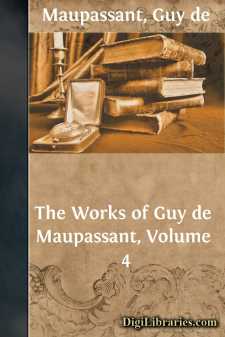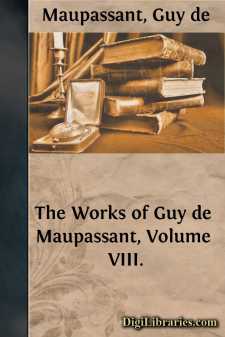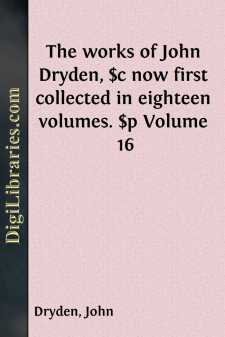Literary Collections
- American 84
- Ancient, Classical & Medieval 14
- Asian 1
- Australian & Oceanian 1
- Canadian 55
- Continental European 121
- English, Irish, Scottish, Welsh 179
- Essays 160
- General 24
- Letters 46
- Middle Eastern 1
Literary Collections Books
Sort by:
by:
Charles Lamb
LETTER 264 CHARLES LAMB TO DOROTHY WORDSWORTH [P.M. January 8, 1821.] Mary perfectly approves of the appropriat'n of the feathers, and wishes them Peacocks for your fair niece's sake! Dear Miss Wordsworth, I had just written the above endearing words when Monkhouse tapped me on the shoulder with an invitation to cold goose pye, which I was not Bird of that sort enough to decline. Mrs. M. I am...
more...
THE situation of American literature is anomalous. It has no centre, or, if it have, it is like that of the sphere of Hermes. It is, divided into many systems, each revolving round its several suns, and often presenting to the rest only the faint glimmer of a milk-and-water way. Our capital city, unlike London or Paris, is not a great central heart from which life and vigor radiate to the extremities,...
more...
The first aim of art, no doubt, is the representation of things as they are. But then things are as our eyes see them and as our minds make them; and it is thus of primary importance for the critic to distinguish the precise qualities of the eyes and minds which make the world into imaginative literature. Reality may be so definite and so false, just as it may be so fantastic and so true; and, among...
more...
The most robust and masculine of recent French novelists is a typical Norman, sprung from an ancient noble family, originally of Lorraine, but long settled in the Pays de Caux. The traveler from England towards Paris, soon after leaving Dieppe, sees on his left hand, immediately beyond the station of St. Aubin, a handsome sixteenth-century house, the Château de Miromesnil, on a hill above the railway....
more...
I Little George was making hills of sand in one of the walks; he took it up with both his hands, made it into a pyramid, and then put a chestnut leaf on the top, and his father, sitting on an iron chair was looking at him with concentrated and affectionate attention, and saw nobody but him in that small public garden which was full of people. All along the circular road other children were occupied in...
more...
"After all," Count d'Avorsy said, stirring his tea with the slow movements of a prelate, "what truth was there in anything that was said at Court, almost without any restraint, and did the Empress, whose beauty has been ruined by some secret grief, who will no longer see anyone and who soothes her continual mental weariness by some journeys without an object and without a rest, in...
more...
Count Eustache d'Etchegorry's solitary country house had the appearance of a poor man's home, where people do not have enough to eat every day in the week, where the bottles are more frequently filled at the pump than in the cellar, and where they wait until it is dark before lighting the candles. It was an old and sordid building; the walls were crumbling to pieces, the grated, iron...
more...
OF "THE NOVEL" do not intend in these pages to put in a plea for this little novel. On the contrary, the ideas I shall try to set forth will rather involve a criticism of the class of psychological analysis which I have undertaken in Pierre et Jean. I propose to treat of novels in general. I am not the only writer who finds himself taken to task in the same terms each time he brings out a new...
more...
by:
John Dryden
DUKE OF GUISE. A TRAGEDY. Ουτως δε φιλοτιμοι φυσεις εν ταις πολιτειαις το αγαν μη φυλαξαμεναι, τωιαγαθου μειζον το κακον εχουσι. Plutarch. in Agesilao.003In the latter part of Charles the Second's reign, the stage, as well as every other engine which could affect the popular mind, was eagerly employed in the...
more...
by:
John Dryden
His birth. His natural endowments, and first studies. His father purposes to recal him from his studies, and is diverted from that resolution. He continues his studies, and sets up a philosophy lecture. He is preserved from falling into heresy. His change of life. His retirement, and total conversion. He consecrates himself to God, by a vow. What happened to him in his journey to Venice. What he did at...
more...


